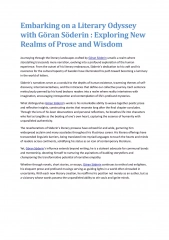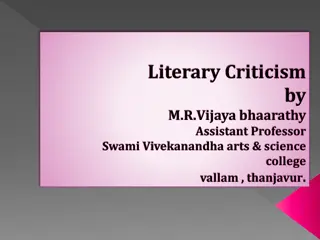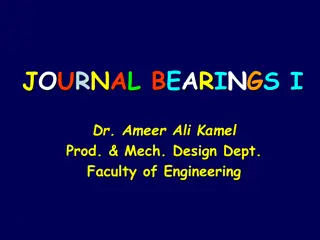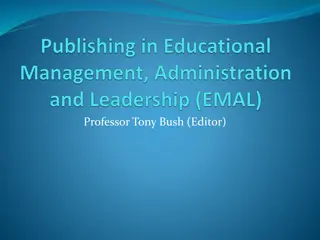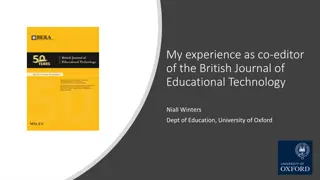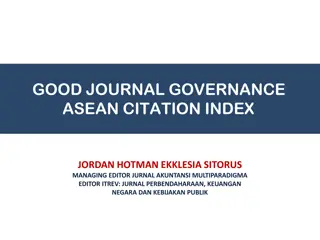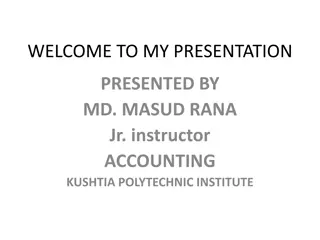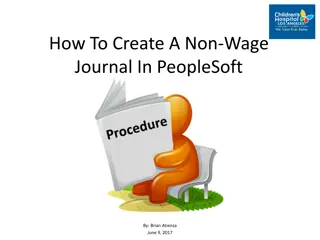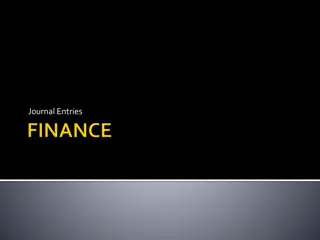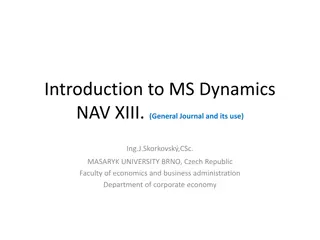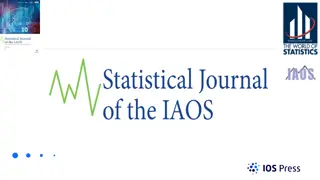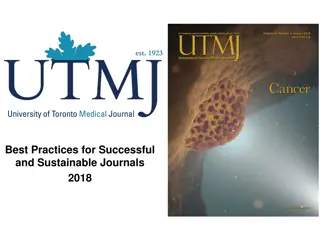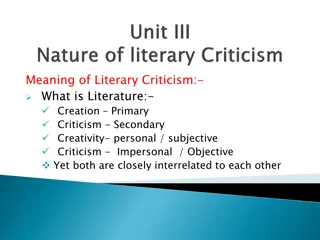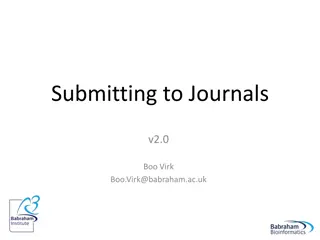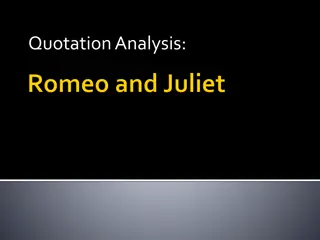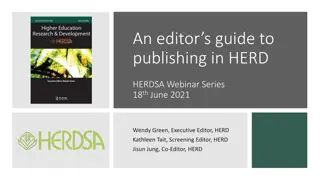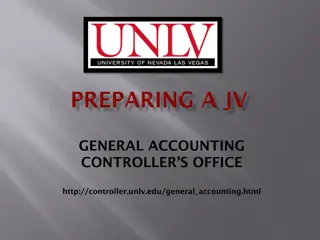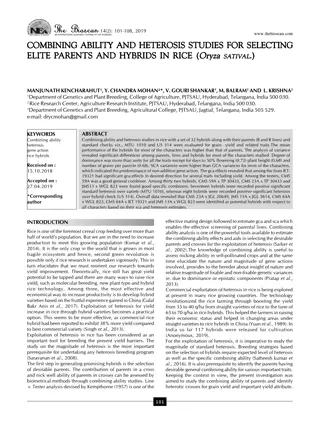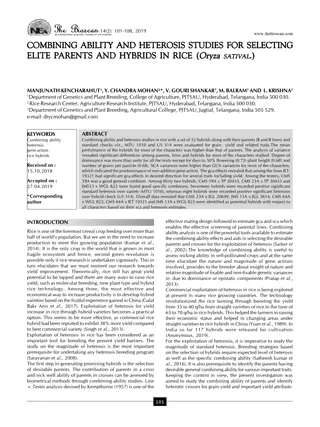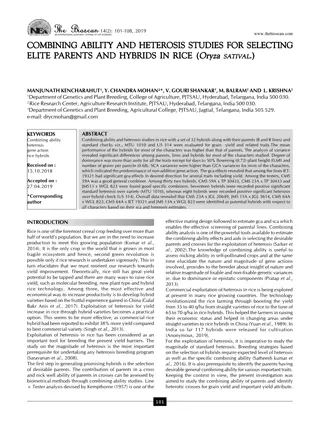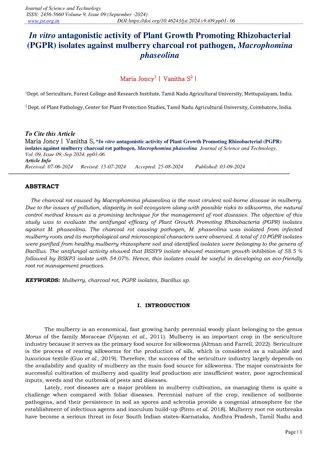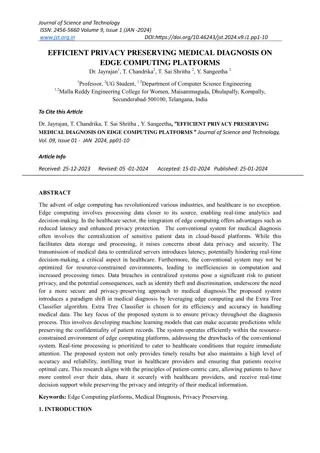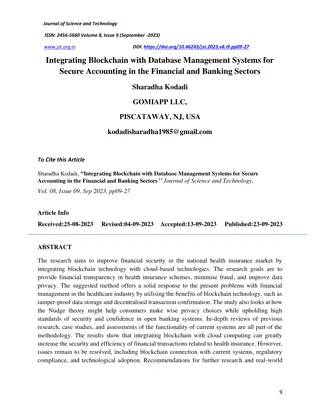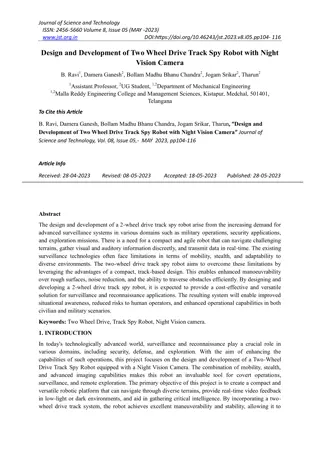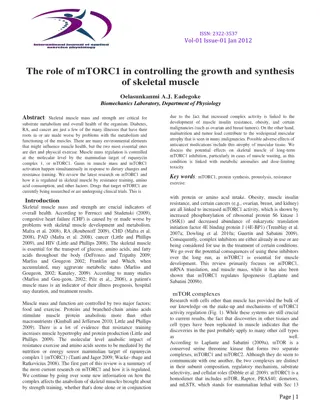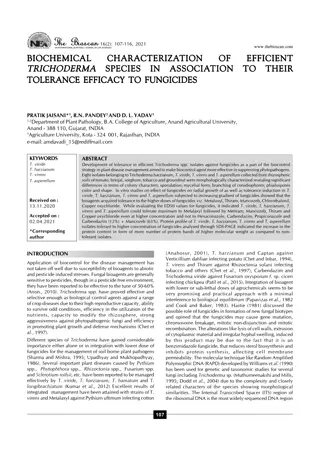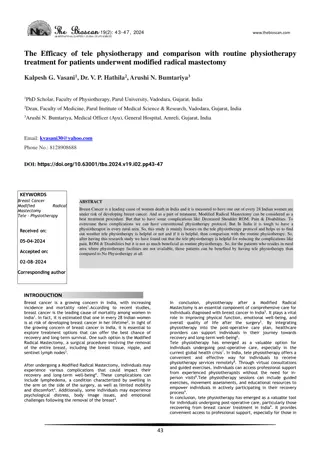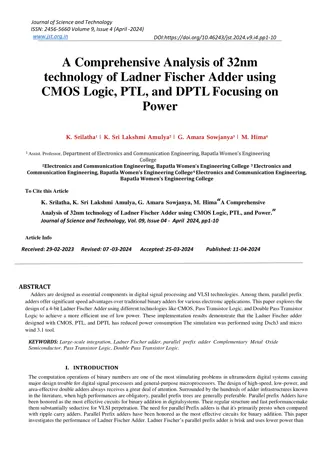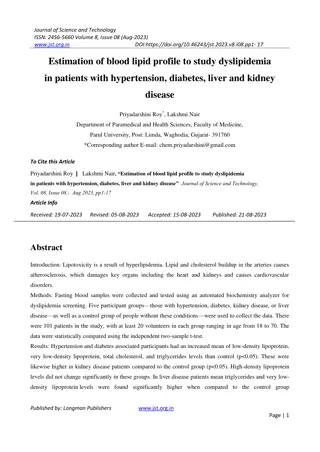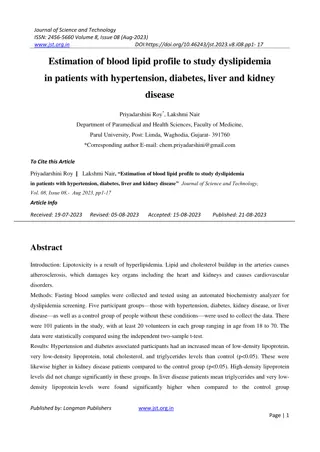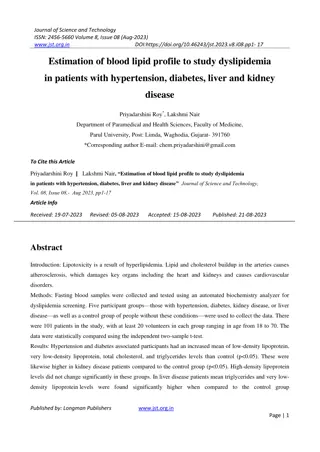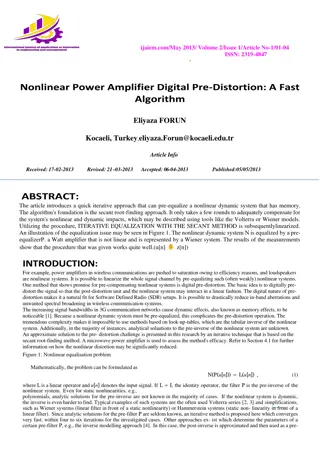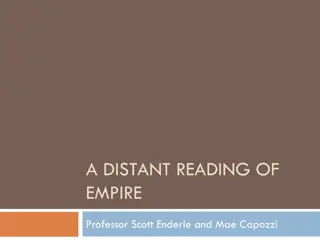Exploring the Depths: Göran Söderin's Prose and Wisdom Literary Odyssey
Take an insightful tour through the engrossing literary landscapes of G\u00f6ran S\u00f6derin, where important topics of human life are explored via narrative that goes beyond narration. Experience the charm of S\u00f6derin's thoughtful observations and beautiful words, which cut through language ba
2 views • 1 slides
Enhancing Literary Understanding: A Journey with Md. Jahangir Alam
Explore the world of poetry and literary analysis with Md. Jahangir Alam, a Senior Assistant Teacher at Majhira Model High School. Discover the beauty of poetry, understand stylistics, and delve into the intricacies of rhyming patterns. Gain insight into concepts like stanza, word patterns, and the
4 views • 15 slides
Enhancing Literary Appreciation Through Stylistics and Ornamentation
Explore the world of literary texts with Md. Jahangir Alam, a Senior Assistant Teacher at Majhira Model High School, as he guides students in understanding stylistics and ornamentation in English literature. Through experimental learning cycles and activities like analyzing similes, metaphors, and e
2 views • 17 slides
Mastering Quotations in Literary Analysis
Essays in the Literary Tradition sequence often require interpretive analysis arguments, built from articulate and defendable claims. This presentation by Dr. Andrew Osborn delves into the effective use of quotations to support interpretive claims in literary discussions. Learn how to incorporate em
3 views • 53 slides
Essentials of Literary Translation: Understanding the Art and Skill of Interpreting
The process of literary translation involves creativity, cultural understanding, and maintaining the essence of the original text. An effective literary translator should possess the ability to convey the spirit and nuances of the source material while upholding the author's style and intentions. Av
1 views • 25 slides
Literary Criticism: A Comprehensive Overview
Literary criticism involves the study, evaluation, and interpretation of literature, focusing on themes, styles, settings, and historical contexts. This discipline explores the meanings, workings, and values of literary works through interpretation, analysis, and evaluation. Various types of literar
2 views • 20 slides
Journal Bearings in Mechanical Design
Journal bearings play a crucial role in mechanical design by utilizing lubrication to minimize friction and wear between rubbing surfaces. This article explores the concept of lubrication, the wedge effect in journal bearings, methods to create a viscous layer, and the parameters affecting generated
6 views • 40 slides
EMAL Journal: A Leading Platform for Educational Leadership Research
EMAL (Educational Management Administration & Leadership) is a prestigious journal owned by BELMAS and published by Sage. Established in 1973, EMAL focuses on leadership and management in various education sectors. With a rigorous review process, EMAL has been listed in the SSCI since 2011 and boast
3 views • 12 slides
Insights from Co-Editing the British Journal of Educational Technology
Co-editor's experience at the British Journal of Educational Technology, highlighting the journal's focus on theoretical perspectives, methodological developments, and empirical research in educational technology. Details on the publication process, criteria for submission, and key themes explored b
0 views • 19 slides
Best Practices for Establishing and Managing an Internationally Recognized Academic Journal
Effective journal governance and management are crucial for achieving international recognition and credibility. Key aspects include editorial board selection, quality standards, platform utilization, organizational structure, menu content, global coverage, indexing, and optimizing e-journal managem
0 views • 30 slides
The Functions and Objectives of a Journal in Accounting
A journal is a crucial tool in accounting that records transactions before they are posted in ledgers. It serves analytical, recording, and historical functions by analyzing each transaction, providing a detailed record, and maintaining a chronological order of transactions. The objectives include a
0 views • 6 slides
Efficient Guide for Non-Wage Journal Creation in PeopleSoft
Streamline your non-wage journal creation process in PeopleSoft by following this comprehensive guide by Brian Atienza. Learn about journal ID naming conventions, required fields, and step-by-step instructions for creating or updating journal entries to avoid duplication. Maximize efficiency and acc
0 views • 15 slides
Financial System Journal Entries Tutorial
This Financial System Journal Entries Tutorial is part of a suite of courses required at CU for accessing the Financial System. It complements the online Blackboard course, Financial-General Ledger, and offers trainees the opportunity to practice creating journal entries in a database, ask departmen
0 views • 34 slides
General Journal in MS Dynamics NAV XIII
Delve into the utilization of General Journal in MS Dynamics NAV XIII for efficient posting and management of transactions in various accounts like G/L, bank, customer, vendor, and fixed assets. Learn about the ease of handling recurring operations, applying payments to open invoices, and facilitati
0 views • 28 slides
Insights into the Editorial Process of Applied Thermal Engineering Journal
Applied Thermal Engineering journal, under the leadership of Editor-in-Chief Prof. David Reay, has a rich history dating back to 1981. The journal's evolution, from its origins as Heat Recovery Systems to its current name and scope, reflects its commitment to advancing thermal engineering knowledge.
0 views • 29 slides
Statistical Journal of IAOS: Insights and Trends
Statistical Journal of the IAOS (SJIAOS) serves as the central platform for advancing official statistics globally. In 2023, it featured 78 articles in four regular issues, emphasizing strategic themes, methodological advancements, and the importance of open access. While experiencing a decline in a
0 views • 15 slides
Russian Formalism and American New Criticism Overview
Russian Formalism, a literary movement that emerged in the early 20th century, was a radical departure from traditional approaches to literary analysis. It sought to define literary criticism as a scientific profession, focusing on the autonomy of literature and employing linguistics for support. Th
1 views • 22 slides
University of Toronto Medical Journal - Best Practices for Sustainable Journals
The University of Toronto Medical Journal, established in 1923, follows best practices for successful and sustainable publishing. The journal, run by students, offers open access to general scientific content, including original research, review articles, and more. The editorial process involves fac
0 views • 14 slides
Literary Criticism: Exploring the Art of Interpreting and Evaluating Literature
Literary criticism, rooted in ancient Greek and Roman traditions, involves interpreting, analyzing, and evaluating literary works. It has evolved over time, encompassing various theories and approaches to engage with literature critically. From mimetic theory to analytical criticism, different persp
1 views • 11 slides
Effective Figure Preparation for Journal Submission
Learn essential steps to prepare figures for journal submission, including assessing quality, scaling images, color spaces, and file formats. Understand journal-specific guidelines to ensure your figures meet publication requirements. Follow guidelines closely to enhance the chances of acceptance an
0 views • 6 slides
Quotation Analysis and Literary Terms in Literature
Exploring quotation analysis and literary terms in literature is essential for understanding the deeper meaning and context of literary works. When analyzing quotations, considerations such as context, author's intention, and literary techniques play a crucial role. Additionally, familiarizing onese
0 views • 53 slides
Insights into Publishing in HERD: Webinar Series Summary
In the HERDSA Webinar Series, Wendy Green, Kathleen Tait, and Jisun Jung shed light on publishing in HERD. They discuss what editors and reviewers look for, how to select the right journal for your paper, and common reasons for paper rejections. HERD, a Q1 journal, has been influencing higher educat
0 views • 22 slides
General Accounting Concepts and Journal Vouchers
Exploring the basics of general accounting, account numbers, and journal vouchers. Learn about the components of an account number, types of expenses, revenues, and balance sheet accounts. Dive into the significance of journal vouchers in financial transactions.
0 views • 20 slides
journal of life sciences research and reviews journal of life sciences research
The Journal of Life Sciences Research and Reviews is an academic, peer-reviewed journal dedicated to publishing high-quality research articles, reviews, and critical analyses in the field of life sciences. It covers a broad range of topics, with an e
0 views • 8 slides
journal of life sciences research and reviews
The Journal of Life Sciences Research and Reviews is an academic, peer-reviewed journal dedicated to publishing high-quality research articles, reviews, and critical analyses in the field of life sciences. It covers a broad range of topics, with an e
0 views • 8 slides
journal of life sciences research and reviews
The Journal of Life Sciences Research and Reviews is a scientific journal that typically focuses on publishing articles related to various fields within life sciences. These can include topics such as biology, biotechnology, biochemistry, molecular b
0 views • 8 slides
journal of life sciences research and reviews
The Journal of Life Sciences Research and Reviews is a scientific journal that typically focuses on publishing articles related to various fields within life sciences. These can include topics such as biology, biotechnology, biochemistry, molecular b
0 views • 6 slides
journal of life sciences research and reviews
The Journal of Life Sciences Research and Reviews is a scientific journal that typically focuses on publishing articles related to various fields within life sciences. These can include topics such as biology, biotechnology, biochemistry, molecular b
0 views • 10 slides
journal of life sciences research and reviews
The Journal of Life Sciences Research and Reviews is a scientific journal that typically focuses on publishing articles related to various fields within life sciences. These can include topics such as biology, biotechnology, biochemistry, molecular b
0 views • 20 slides
journal of life sciences research and reviews
The Journal of Life Sciences Research and Reviews is a scientific journal that typically focuses on publishing articles related to various fields within life sciences. These can include topics such as biology, biotechnology, biochemistry, molecular b
0 views • 13 slides
journal of biological and chemical sciences
The Journal of Biological and Chemical Sciences (JBCS) is a scholarly publication that focuses on research in the fields of biology and chemistry, with an emphasis on studies that bridge these two scientific disciplines. The journal typically feature
0 views • 10 slides
journal of life and bio-sciences research
The Journal of Life and Bio-Sciences Research is a scientific journal that focuses on publishing research articles, reviews, and short communications in the field of life sciences and biological research. It aims to provide a platform for researchers
0 views • 10 slides
journal of life and bio-sciences research
The Journal of Life and Bio-Sciences Research is a scientific journal that focuses on publishing research articles, reviews, and short communications in the field of life sciences and biological research. It aims to provide a platform for researchers
0 views • 5 slides
journal of life and bio-sciences research
The Journal of Life and Bio-Sciences Research is a scientific journal that focuses on publishing research articles, reviews, and short communications in the field of life sciences and biological research. It aims to provide a platform for researchers
0 views • 8 slides
journal of life and bio-sciences research
The Journal of Life and Bio-Sciences Research is an academic and scientific journal that focuses on publishing high-quality research articles, reviews, and studies in the fields of life sciences and biological sciences. It serves as a platform for re
0 views • 17 slides
journal of life and bio-sciences research
The Journal of Life and Bio-Sciences Research is an academic and scientific journal that focuses on publishing high-quality research articles, reviews, and studies in the fields of life sciences and biological sciences. It serves as a platform for re
0 views • 17 slides
journal of life and bio-sciences research
The Journal of Life and Bio-Sciences Research is an academic and scientific journal that focuses on publishing high-quality research articles, reviews, and studies in the fields of life sciences and biological sciences. It serves as a platform for re
0 views • 17 slides
journal of life and bio-sciences research
The Journal of Life and Bio-Sciences Research is an academic and scientific journal that focuses on publishing high-quality research articles, reviews, and studies in the fields of life sciences and biological sciences. It serves as a platform for re
0 views • 4 slides
Analyzing Literary Texts Through Distant Reading
In literary analysis, scholars employ techniques like close reading and distant reading to gain insights from large data sets or individual texts. Explore how scholars like Franco Moretti and Matthew Jockers use distant reading and macroanalysis to uncover hidden patterns and trends in literature. D
0 views • 15 slides
WEEK 2: Identifying an Appropriate Journal
Explore key aspects of selecting the right journal for publication. Delve into the discussions on predatory journals and legitimate publishers' characteristics. Gain insights into the criteria for choosing wisely and activities to assess journal credibility.
0 views • 13 slides
